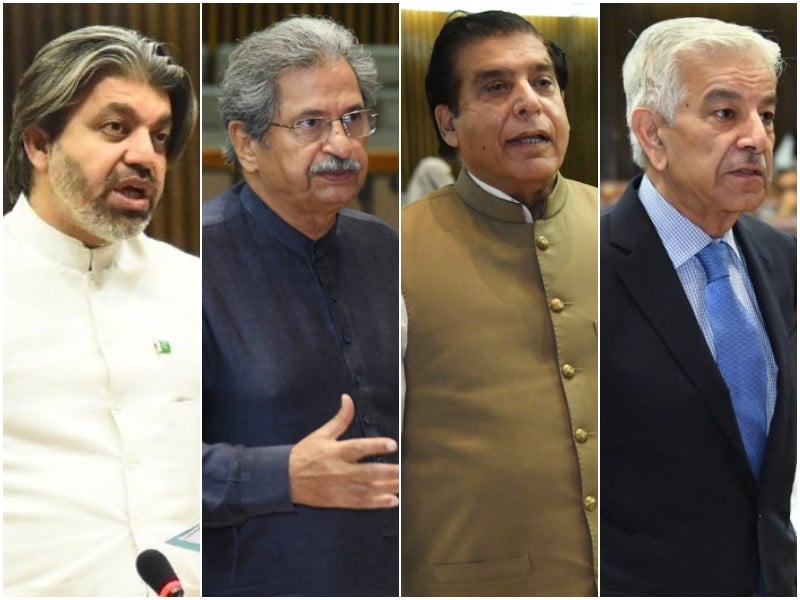
Opposition lawmakers in the National Assembly on Monday stressed the need for national cohesion to face challenges emanating from Afghanistan and called for rule of law and free, fair and transparent elections in the country.
Taking part in the debate on the presidential address, senior politicians from Pakistan Muslim League-Nawaz (PML-N), Pakistan Peoples Party (PPP) and others urged Speaker Asad Qaiser to play his part in empowering parliament, which they described as the most powerful institution in the country.
From the government’s side, Education Minister Shafqat Mehmood and National Assembly Member (MNA) Alia Hamza, criticised the opposition for doing politics on vital national issues, such as examinations for secondary and higher secondary classes amid ongoing coronavirus pandemic.
The house met here, with Panel of Chairman member Amjad Niazi in the chair. During the session, Ayaz Sadiq presented the report of the Public Accounts Committee (PAC) for the period July 1, 2019 to December 2019 and for the period from January 1, 2020 to June 30, 2020.
WATCH: Taliban purportedly destroy two Afghan air force copters in ‘tactical attack’
Reports of the standing committees on water resources, information technology and telecommunication were also presented, while Parliamentary Secretary for Education Wajiha Akram moved the Pakistan Global Institute Bill 2021 in the house.
The house thanked the president of Pakistan for his address to the joint sitting of parliament on August 20, 2020. Earlier, the debate began in the National Assembly over the presidential address, which was initiated by former foreign minister Khawaja Muhammad Asif.
Asif said that Pakistan could not remain indifferent to the situation Afghanistan. “The United States is leaving Afghanistan after spending $2 trillion and the killing of 3,500 NATO troops. The situation in Afghanistan is a matter of concern for the whole world,” he added.
The senior PML-N leader told the house that the decisions taken in the past regarding “strategic depth” were wrong. Khawaja Asif warned that there were “fault lines” in the country on the basis of religion and languages.
Read more: Will not let effects reach Pakistan if Afghanistan descends into war: Fawad
“If these fault lines deteriorated, how will we deal with them,” he asked. “Only a united nation can cope with the situation if the one arose,” he added. For the national unity, he stressed that respect for the Constitution was essential for running any system.
“The speaker should play his role in empowering parliament. We also have to reconsider our past decisions,” Asif said. “Only a united nation, when Punjabis, Pakhtuns, Balochs and Sindhis are also happy, can cope with any situation.”
Asif appreciated the briefing to the lawmakers on the situation in neighbouring Afghanistan by the army chief and the director general of the Inter-Services Intelligence (ISI). “I am grateful to the team that came [to the house] to give the briefing,” he added.
Asif emphasised that respecting the vote meant acting according to the Constitution. He added that the army, the media and the judiciary were all powerful institutions, but warned that until transparent elections were held politicians would continue to look towards Rawalpindi, a reference to the army.
“You too should play your role in enhancing the prestige of this house,” the senior parliamentarian said, addressing the speaker. “The 220 million people of Pakistan must be part of the power game. Civilian supremacy is also about respecting the vote.”
Referring to the political hostilities between his party and the PPP in the 1990s, Asif said: “We learned lesson from the past. In 1999, there was military intervention and he [former military ruler General Pervez Musharraf] ruled for 9 years and we politicians also became a part of it [military government].
Education Minister Shafqat Mahmood said that it had been noticed since last few days that politics had been done on the examinations issue. He added that the decision of conducting the exams was taken jointly by all the federating units but now there was a demand for the postponement of the exams.
The PPP-led government in Sindh and the PML-N government in Azad Kashmir, along with all education ministers, decided for conducting the exams. “All the education ministers thought that there must be examinations,” he said.
“Many schools remained closed due to coronavirus pandemic therefore, the children could not get the education. The curriculum was reduced by 40%, and exams were postponed for three months to give time to the students to prepare,” he said.
“The education ministers decided to conduct the exams. The reason for conducting the exams in phases was the admissions of the students in different fields,” the minister explained. “But alas, the opposition deliberately politicised the issue. I condemn politics against the unanimous decisions.”
In his speech, Raja Pervez Ashraf referred to the upcoming elections in Azad Kashmir. “Our Kashmir affairs minister says whoever gives us the lead in the election will give him Rs10 million,” he alleged. “What impression do you want to give by saying such things?”
He then asked what action would the prime minister take against this minister. “There should be no contradiction in one’s words and deeds,” he said. And in a general comment, he added: “We [the politicians] do things that lead to creating wrong impression among the people.”
Ashraf was critical of the phrase “hereditary politics”. “If the son of a lawyer becomes a lawyer and the son of a businessman becomes a businessman, would you object to that? It is wrong to say that there is hereditary politics,” he said. “I became prime minister from an ordinary party worker.”
Commenting on the situation in Afghanistan, the former prime minister told the lawmakers that the issue was openly discussed in the house, which was a welcome development. “There should be more briefings on the situation, he added, referring to the briefing given by the army chief and ISI chief.
“The sacrifices of our Pakistani forces are in front of everyone. When your house is in danger, everyone has to come together. Pakistan is our home for which we have to analyse the issues together. We have to sit down and analyse our economy, internal matters, borders issues and ties with friendly countries.”
Ashraf also demanded of the government to give time to the students to prepare for the exams. He said that demands of the children regarding the examinations was legitimate. If you conduct the exams today, most of them will fail due to lack of preparation,” he warned.
Another senior lawmaker from the PML-N, Ahsan Iqbal, supported the call for postponing the examinations till the completion of the curriculum. “Our goal should be to complete the curriculum and prevent students from failing.”
Alia Hamza said the country’s exports had increased during the tenure of this government. “Exports during our time topped $31.2 billion. Textile exports exceeded $15 billion, IT sector exports surpassed $2 billion,” she said. “I salute the overseas Pakistanis whose remittances have reached $29 billion.”
Mohsin Dawar told the house that in the past, politicians played tools in the hands of dictators. He added that the country’s policy towards Afghanistan had not changed. “We have paid a heavy price for our wrong policies towards Afghanistan in the past,” he said.
“Terrorists are gathering again in the tribal districts and they are not being stopped. There is no debate in the house to prevent terrorism. It is being said that we do not support any party in Afghanistan then who is broadcasting on TV channels that Afghanistan is occupied by Taliban?”
Dawar said that the announcement of the National Finance Commission (NFC) Award was the responsibility of the president, but added that the president had himself become controversial in the light of some decisions of the Supreme Court.
To solve the problems of Balochistan, Dawar said, all stakeholders must be taken into confidence. The public mandate must be respected to avoid the mistakes of the past, he said. “Those responsible for the past mistakes should be brought to book by setting up a truth and reconciliation commission.”
Speaking on a point of objection, Murtaza Javed Abbasi said that 300-400 hotels in Naran were demolished in the name of encroachment. “We condemn it.” He also condemned the destruction of the Gujjar Secretariat in Swat.
Also, a calling-attention notice was moved by the lawmakers belonging to the Balochistan National Party-Mengal (BNP-M) against electricity load-shedding in Gwadar. State Minister Ali Muhammad Khan replied that load shedding in Gwadar and Makran occurred because of short supply from Iran.
“Electricity to many of these there is sourced from Iran. Extreme heat caused load-shedding in Iran, which also affected our region. Power shortages in Iran led to power shortages in Balochistan,” he said, adding that the government was planning to connect the Gwadar to the national grid.






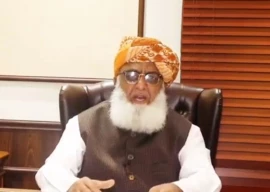
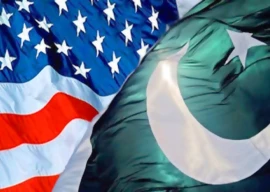
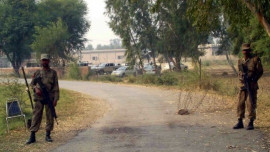

1728020241-0/Express-Tribune-Web-(12)1728020241-0-270x192.webp)
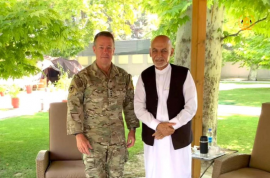
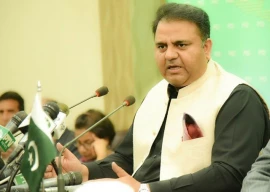
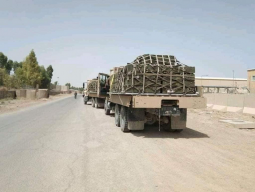






COMMENTS
Comments are moderated and generally will be posted if they are on-topic and not abusive.
For more information, please see our Comments FAQ